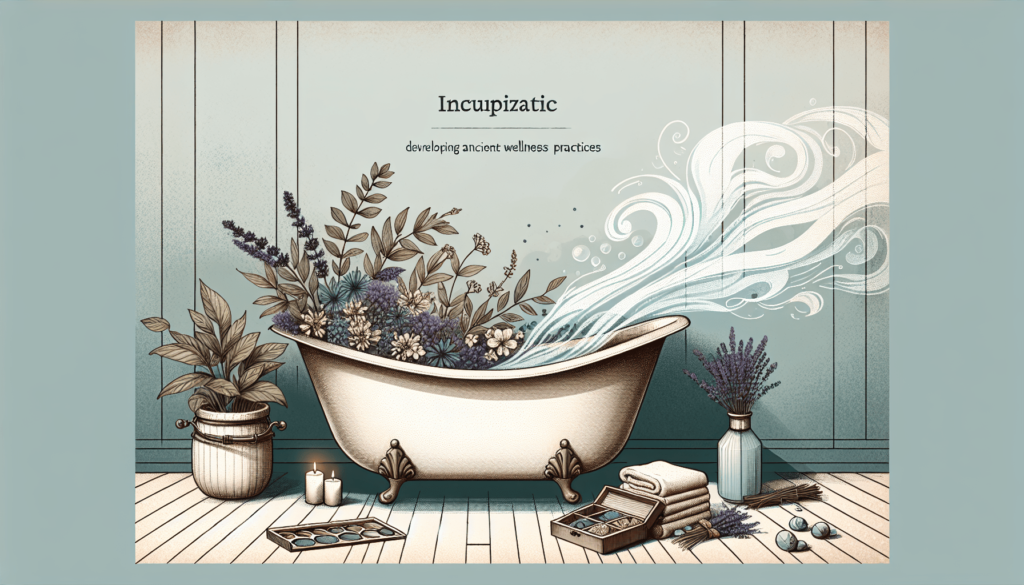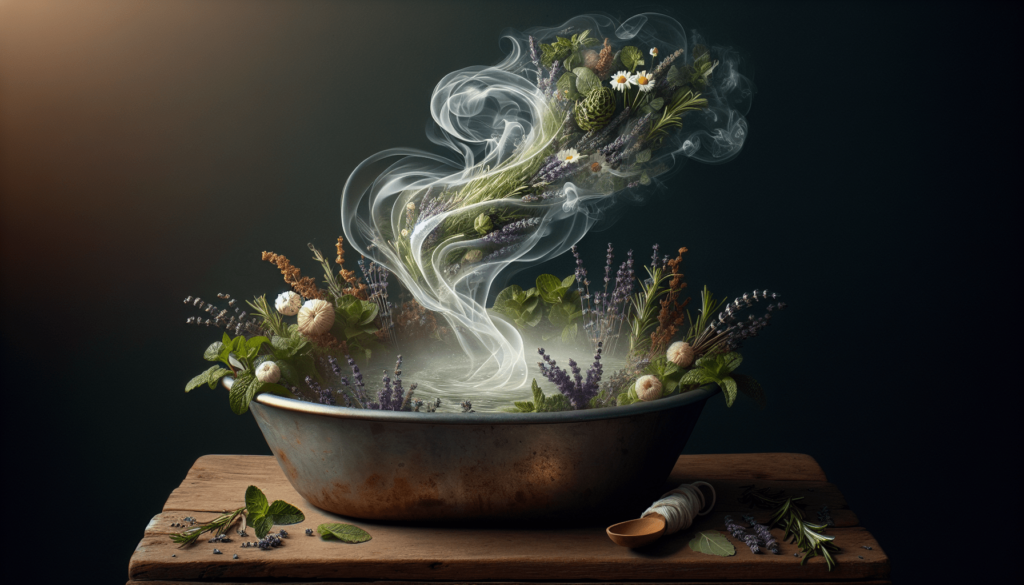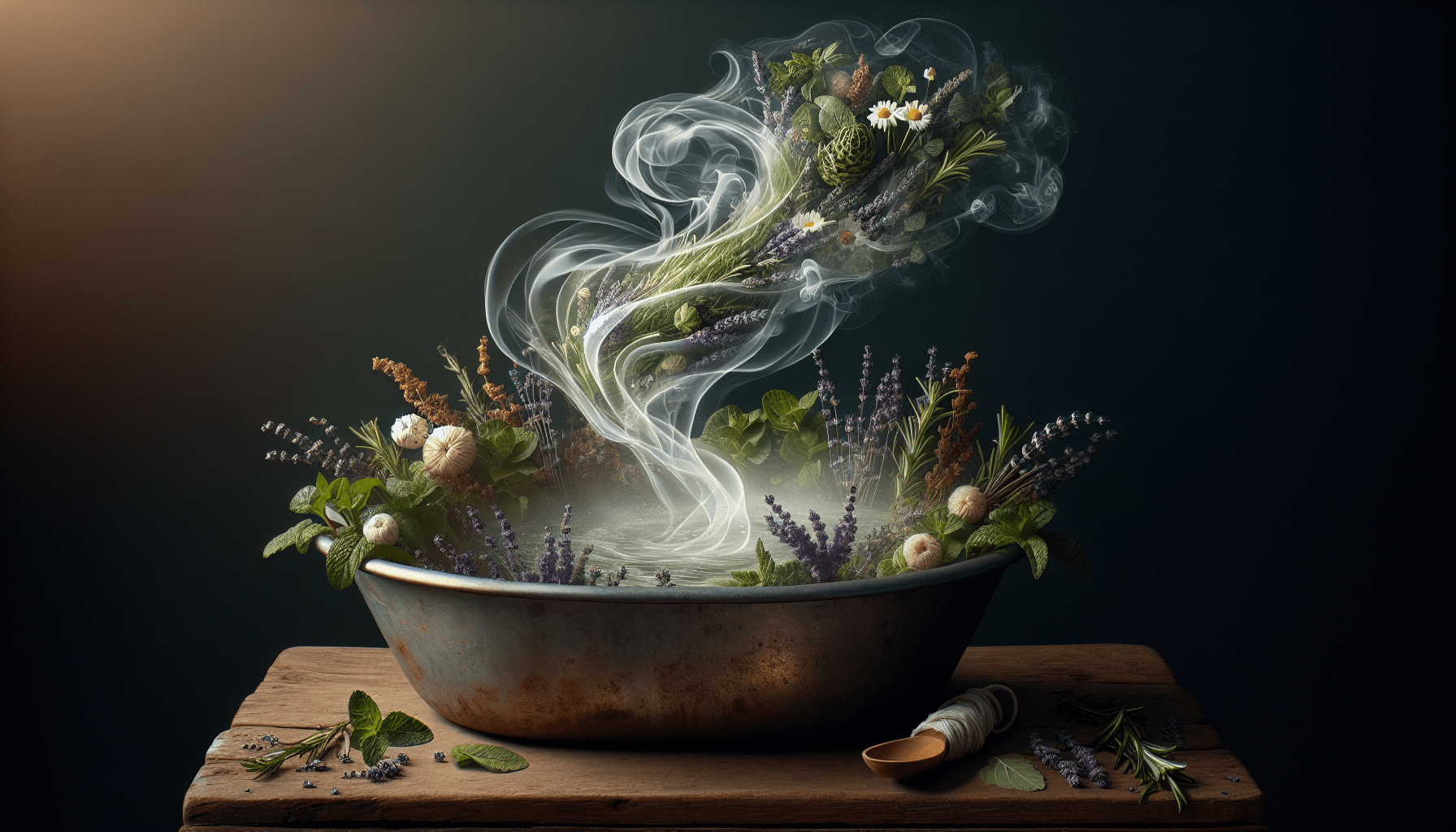Welcome to an article exploring the wonderful world of herbal baths and their healing benefits! Incorporating herbs into your bath routine can provide a natural and holistic way to relax, rejuvenate, and heal both your body and your mind. From calming chamomile to invigorating peppermint, there are a variety of herbs that can be added to your bath water to promote relaxation, relieve stress, soothe sore muscles, and improve overall well-being. So, grab your favorite herbs, run a warm bath, and treat yourself to a luxurious and therapeutic herbal bath experience. Have you ever considered the amazing benefits of incorporating herbal baths into your self-care routine? Not only do herbal baths offer relaxation and rejuvenation, but they also have a range of healing properties that can benefit both your physical and mental well-being. Let’s take a deep dive into the world of herbal baths and discover the incredible ways in which they can enhance your overall health.

What are Herbal Baths?
Herbal baths involve soaking in a warm bath infused with a variety of herbs, flowers, and essential oils. These natural ingredients release their therapeutic properties into the water, creating a soothing and healing experience for the bather. Herbal baths have been used for centuries in various cultures around the world for their medicinal and relaxation benefits.
Soothe Your Body and Mind
Herbal baths provide a holistic approach to self-care, combining the healing power of water with the therapeutic properties of herbs. As you soak in the warm herbal-infused water, you can experience a deep sense of relaxation and tranquility. The aromatic scents of the herbs can help calm your mind and reduce stress, allowing you to unwind and recharge.
Benefits of Herbal Baths
From soothing sore muscles to improving skin health, herbal baths offer a wide range of benefits for both your body and mind. Let’s explore some of the most notable advantages of incorporating herbal baths into your self-care routine.
Relieve Muscle Tension
One of the primary benefits of herbal baths is their ability to help relieve muscle tension and soreness. The combination of warm water and herbs can relax tight muscles, reduce inflammation, and improve circulation. Whether you’ve had a long day at work or an intense workout at the gym, a herbal bath can provide much-needed relief for your aching muscles.
Enhance Skin Health
Herbal baths can also work wonders for your skin. The natural ingredients found in herbs and essential oils have moisturizing, anti-inflammatory, and antimicrobial properties that can help improve the overall health and appearance of your skin. Regular herbal baths can leave your skin feeling soft, smooth, and rejuvenated.
Improve Respiratory Health
If you’re dealing with respiratory issues such as congestion or allergies, herbal baths can offer relief. The steam from the warm water can help open up your airways, making it easier to breathe. Certain herbs like eucalyptus and peppermint have decongestant properties that can clear nasal passages and relieve respiratory discomfort.
Boost Immune Function
Herbal baths can also support your immune system and help you ward off common illnesses. Many herbs used in herbal baths, such as chamomile and lavender, have immune-boosting properties that can strengthen your body’s defenses against viruses and bacteria. Taking regular herbal baths can help keep your immune system in top shape.
Promote Relaxation and Sleep
In today’s fast-paced world, stress and sleep issues are all too common. Herbal baths offer a natural and effective way to promote relaxation and improve sleep quality. The calming scents of herbs like lavender and chamomile can help reduce anxiety, lower cortisol levels, and prepare your body for restful sleep.
Types of Herbs for Herbal Baths
There is a wide variety of herbs that you can use in your herbal baths, each with its unique therapeutic properties. Whether you’re looking to relax, soothe sore muscles, or improve your skin health, there’s an herb out there that can cater to your specific needs. Here are some popular herbs commonly used in herbal baths and their benefits:
| Herb | Benefits |
|---|---|
| Lavender | Promotes relaxation, relieves stress and anxiety |
| Chamomile | Calms the mind, improves sleep quality |
| Eucalyptus | Clears nasal passages, relieves respiratory issues |
| Rosemary | Stimulates circulation, relieves muscle soreness |
| Peppermint | Eases headaches, soothes sore muscles |
| Calendula | Soothes skin irritations, promotes skin healing |
How to Prepare an Herbal Bath
Creating your own herbal bath at home is a simple and enjoyable process. Here’s a step-by-step guide on how to prepare a rejuvenating herbal bath:
-
Choose Your Herbs: Select a combination of herbs that cater to your specific needs and preferences. You can use fresh or dried herbs, as well as essential oils for added therapeutic benefits.
-
Infuse the Herbs: Place the herbs in a muslin bag or directly into the bathwater. Allow the herbs to steep in the warm water for at least 10-15 minutes to release their healing properties.
-
Adjust Water Temperature: Fill your bathtub with warm water at a comfortable temperature. Make sure the water is not too hot to avoid skin irritation.
-
Soak and Relax: Step into the herbal-infused water, lie back, and soak for 20-30 minutes. Take deep breaths and allow the aromatic scents of the herbs to envelop you in relaxation.
-
Pat Dry and Moisturize: After your herbal bath, gently pat your skin dry with a soft towel and apply a nourishing moisturizer to lock in hydration.
Tips for Enhancing Your Herbal Bath Experience
To make the most of your herbal bath experience, here are some additional tips and tricks:
Set the Mood
Create a relaxing ambiance in your bathroom by dimming the lights, lighting candles, and playing soft music. Turn your herbal bath into a mini spa retreat where you can unwind and rejuvenate.
Add Epsom Salt
Enhance the muscle-relaxing benefits of your herbal bath by adding Epsom salt to the water. Epsom salt is rich in magnesium, which can help soothe sore muscles and reduce inflammation.
Stay Hydrated
During and after your herbal bath, remember to drink plenty of water to stay hydrated. Soaking in warm water can be dehydrating, so it’s essential to replenish your body with fluids.
Experiment with Blends
Don’t be afraid to get creative with your herbal bath blends. Mix and match different herbs to create unique combinations that cater to your specific needs and preferences.
Incorporate Meditation
Use your time in the herbal bath as an opportunity to practice mindfulness and meditation. Focus on your breath, let go of stress, and allow yourself to be fully present in the moment.

Conclusion
Herbal baths offer a luxurious and therapeutic way to promote physical and mental well-being. By incorporating herbal baths into your self-care routine, you can enjoy a range of benefits, from muscle relaxation to improved skin health to enhanced immune function. So, the next time you need some me-time, consider treating yourself to a rejuvenating herbal bath and let the healing properties of herbs work their magic on your body and mind.

